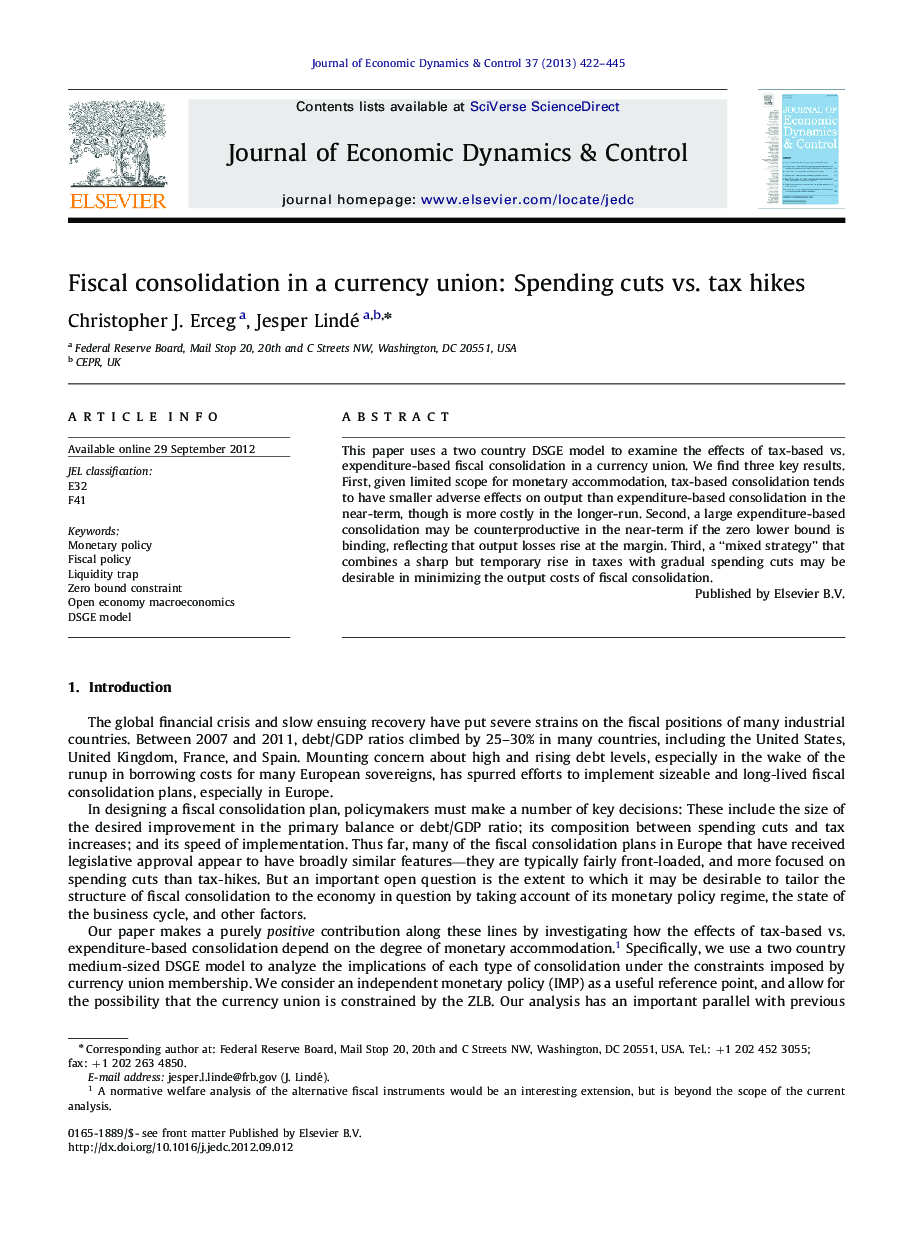| Article ID | Journal | Published Year | Pages | File Type |
|---|---|---|---|---|
| 5098858 | Journal of Economic Dynamics and Control | 2013 | 24 Pages |
Abstract
This paper uses a two country DSGE model to examine the effects of tax-based vs. expenditure-based fiscal consolidation in a currency union. We find three key results. First, given limited scope for monetary accommodation, tax-based consolidation tends to have smaller adverse effects on output than expenditure-based consolidation in the near-term, though is more costly in the longer-run. Second, a large expenditure-based consolidation may be counterproductive in the near-term if the zero lower bound is binding, reflecting that output losses rise at the margin. Third, a “mixed strategy” that combines a sharp but temporary rise in taxes with gradual spending cuts may be desirable in minimizing the output costs of fiscal consolidation.
Related Topics
Physical Sciences and Engineering
Mathematics
Control and Optimization
Authors
Christopher J. Erceg, Jesper Lindé,
